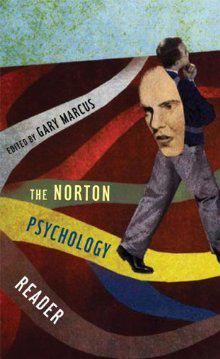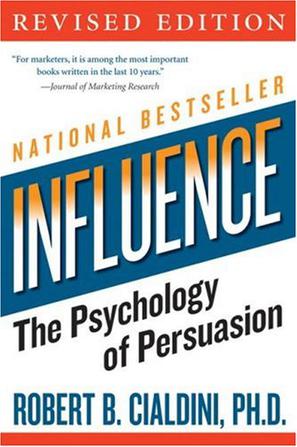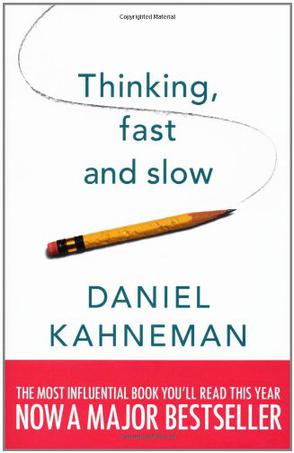-

The Norton Psychology Reader
If you’ve ever wondered about the mind and behavior, the Norton Psychology Reader is the perfect place to start. From the biological basis of emotion to the psychological basis of culture, from the nature of nurture to the nature of intelligence, with selections by leading scientists with a knack for writing—including Steven Pinker, Joseph Ledoux, Antonio Damasio, Oliver Sacks, and Robert Sapolsky—and top-notch journalists with an uncanny sense for psychology—including Natalie Angier, Daniel Goleman, and Sylvia Nasar—the Norton Psychology Reader presents the best that psychology has to offer. Edited by noted New York University psychologist Gary Marcus, the Norton Psychology Reader is an unparalleled guided tour through the modern science of the human mind and a perfect companion to any introductory psychology course, filled with insights completely accessible to the interested lay reader. -

西尔格德心理学
《西尔格德心理学:心理学导论》(第14版)一直被奉为普通心理学教科书的经典之作。Ernest R.Hilgard(西尔格德)教授自1928年便在耶鲁大学和斯坦福大学教授非常受欢迎的心理学导论课程。该书最早是1953年他本人在多年教学经验基础上,独自编写的普通心理学教科书。由于内容丰富、观点全面、着重启发学生思维、特别适合对初学者的教学和自学,该书一出版即广受赞誉,到1962年第三版时,销量已高达415 000册,成为当年最畅销的图书,很,陕就出版了法语。德语、意大利语、西班牙语等多种文字的译本。 为了不断充实心理学界新的研究内容和适应发展中不断出现的新分支领域,西尔格德心理学教科书从1967年修订开始增加新作者,并每隔三四年修订一次。虽然新作者都是各个领域的专家,但为了纪念Hilgard对此书和心理学教学的贡献,始终保留Hilgard为主要作者的地位。由于本书材料新颖、观点全面,我认为它对于心理学界无论哪一个分支的学者,都是一本不可或缺的重要读物。 强力推荐:Atkinson and Hilgard's Introduction to Psychology With Infotrac 英文原版火热发售 -

Mindset
-

Influence
自出版以来,《影响力》就一直是最为畅销的图书。由于它的影响,劝说得以成为一门科学。无论你是普通人还是为某一产品或事业观点游说的人,这都是一本最基本的书,是你理解人们心理的基石。在《影响力》这本书中,心理学家罗伯特•B•西奥迪尼博士为我们解释了为什么有些人极具说服力,而我们总是容易上当受骗。隐藏在冲动地顺从他人行为背后的6大心理秘笈,正是这一切的根源。那些劝说高手们,总是熟练地运用它们,让我们就范。 Influence , the classic book on persuasion, explains the psychology of why people say "yes"—and how to apply these understandings. Dr. Robert Cialdini is the seminal expert in the rapidly expanding field of influence and persuasion. His thirty-five years of rigorous, evidence-based research along with a three-year program of study on what moves people to change behavior has resulted in this highly acclaimed book. You'll learn the six universal principles, how to use them to become a skilled persuader—and how to defend yourself against them. Perfect for people in all walks of life, the principles of Influence will move you toward profound personal change and act as a driving force for your success. 点击链接进入中文版: 影响力(经典版) -

How to Think Straight About Psychology
Teaching students to become better consumers of psychological research. Keith Stanovich's widely used and highly acclaimed book presents a short introduction to the critical thinking skills that will help students to better understand the subject matter of psychology. How to Think Straight about Psychology, 10e helps students recognize pseudoscience and be able to distinguish it from true psychological research, aiding students to become more discriminating consumers of psychological information. Learning Goals Upon completing this book, readers should be able to: * Evaluate psychological claims they encounter in the general media. * Distinguish between pseudoscience and true psychological research. * Apply psychological knowledge to better understand events in the world around them. -

Thinking Fast and Slow
Daniel Kahneman, recipient of the Nobel Prize in Economic Sciences for his seminal work in psychology challenging the rational model of judgment and decision making, is one of the world's most important thinkers. His ideas have had a profound impact on many fields-including business, medicine, and politics-but until now, he has never brought together his many years of research in one book. In "Thinking, Fast and Slow", Kahneman takes us on a groundbreaking tour of the mind and explains the two systems that drive the way we think and make choices. One system is fast, intuitive, and emotional; the other is slower, more deliberative, and more logical. Kahneman exposes the extraordinary capabilities-and also the faults and biases-of fast thinking, and reveals the pervasive influence of intuitive impressions on our thoughts and behaviour. The importance of properly framing risks, the effects of cognitive biases on how we view others, the dangers of prediction, the right ways to develop skills, the pros and cons of fear and optimism, the difference between our experience and memory of events, the real components of happiness-each of these can be understood only by knowing how the two systems work together to shape our judgments and decisions. Drawing on a lifetime's experimental experience, Kahneman reveals where we can and cannot trust our intuitions and how we can tap into the benefits of slow thinking. He offers practical and enlightening insights into how choices are made in both our professional and our personal lives-and how we can use different techniques to guard against the mental glitches that often get us into trouble. "Thinking, Fast and Slow" will transform the way you take decisions and experience the world.